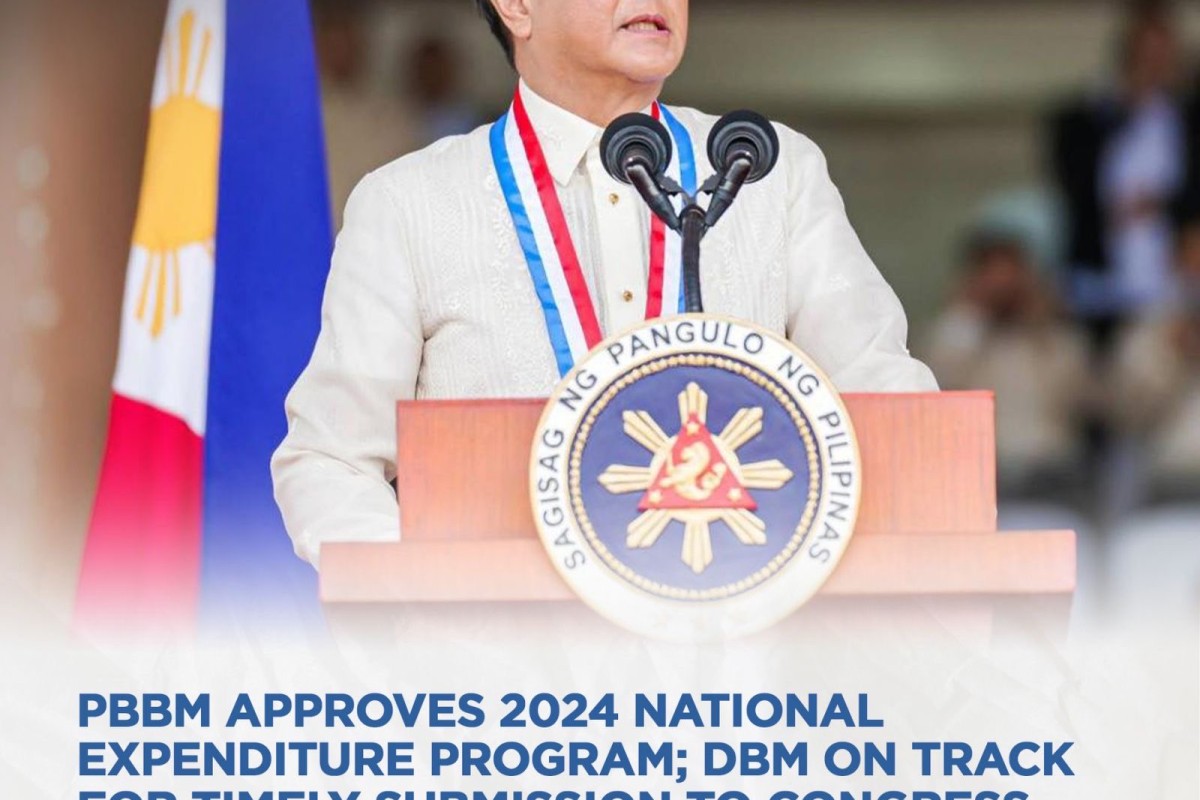

TUGUEGARAO CITY, Cagayan (PIA) - - The administration’s Agenda for Prosperity shall continue, as President Ferdinand R. Marcos Jr. and his Cabinet recently approved the National Expenditure Program for fiscal year (FY) 2024.
Department of Budget and Management (DBM) Secretary Amenah F. Pangandaman said that the proposed 2024 National Budget shall continue to prioritize expenditures that will sustain economic growth bearing in mind inclusivity and sustainability, consistent with the Philippine Development Plan (PDP) 2023-2028, and the administration’s 8-point socioeconomic agenda.
“Guided by our Medium-Term Fiscal Framework, the proposed national budget will continue to prioritize expenditures outlined in the administration's 8-Point Socioeconomic Agenda and cater to the objectives of PDP 2023-2028. It shall continue to reflect our commitment to pursue economic and social transformation to address the scarring effects of the pandemic, as well as the impact of inflation, by prioritizing shovel-ready investments in infrastructure projects, investments in human capital development, and sustainable agriculture and food security, among others,” Secretary Pangandaman said.
The proposed National Budget for FY 2024 is set at P5.768 trillion. It is equivalent to 21.8 percent of GDP and is 9.5 percent higher than this year's P5.268 trillion budget.
“It is crafted as an indispensable step towards the overarching goal to attain upper-middle-income status while bringing down the deficit to 3% of GDP and reducing the poverty rate to 9% or single digit by 2028,” Sec. Pangandaman said.
The Budget Secretary disclosed that the DBM received a total of Php 5.90 trillion budget proposals for FY 2024, which were thoroughly evaluated considering several factors such as the agencies’ budget utilization rates in the past years, and the alignment of their programs, activities and projects (PAPs) with the priorities outlined in the Budget Priorities Framework.
“Due to the limited fiscal space, we optimized the allocation of resources by ensuring that the PAPs that will be budgeted are implementation-ready, and must be delivered and executed on time. This entails that the agency proposals considered are clear, comprehensive, and complete in terms of submitted supporting documents such as feasibility studies and annual procurement plans. We also referred to the agencies’ respective absorptive capacity, as we considered that a low budget utilization rate may reflect the agency's limited capacity to utilize additional funds,” Pangandaman said.
The Budget Chief likewise reiterated that all concerned agencies should exert all efforts to support, uphold, and defend the President’s Budget, and the budget levels during congressional deliberations.
“Since this proposed National Budget is approved by the President, it already becomes the President's Budget… Any adjustments in the proposed amounts will result in a zero-sum game where one agency's gain will be equivalent to another agency's loss; or one project's gain is another project's loss,” Pangandaman said.
However, the Budget Secretary pointed out to agencies that the approval of the President’s Budget does not always imply the end of their initiative, as there will always be future yearly budgets in which they may be included.
“This is not the end of it… Hopefully in the next few years, we will be more ready in presenting our implementation-ready proposals and preparing all the necessary groundwork and requirements,” she said.
“Amidst the challenges the country has faced, we believe that by being consistent in our priorities and spending within our means on the right priorities with measurable results, we can build a truly inclusive and sustainable economy that would benefit not only the Filipinos of today, but the generations to come,” Sec. Pangandaman said.
The Budget Secretary said that the proposed FY 2024 National Budget will be submitted to Congress a few weeks after the second State of the Nation Address of President Bongbong Marcos, which is scheduled on July 24. Under the Constitution, the NEP must be submitted to Congress within 30 days after the SONA.
The NEP is the National Government’s spending plan for the next fiscal year. Once approved by Congress, it will be known as the General Appropriations Bill, and once passed into law, the bill will be known as the General Appropriations Act. (PIA/DBM Press Release)



